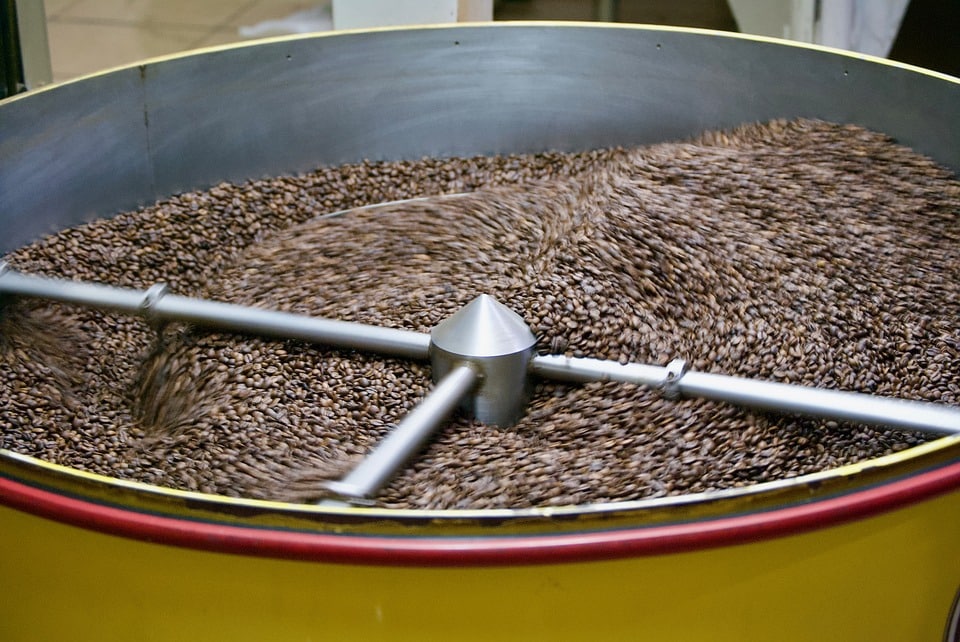SWK’s Industry 4.0 for Food & Beverage Series – Part 2
Following the 10 tips outlined below will empower food & beverage manufacturers and processors to better leverage the advancements brought on by Industry 4.0 to streamline operations and get the best ROI from new technology. In Part 1 of this series, we explained in depth what the digital transformation of manufacturing means for the food and beverage industry, including how federal regulators like the FDA, supply chain partners and consumers are expecting more digitization from companies in this space. Part 2 will help you dig further into the tangible benefits, real world applications and best practices for the Fourth Industrial Wave when working in the process manufacturing sector.
Part 1 of SWK’s Industry 4.0 for Food & Beverage series established the origins of this new manufacturing “revolution,” how it was impacted by COVID-19 and why all of this matters to food manufacturers. Digital transformation is precisely what allowed so many businesses to work from home at an unprecedented scale during the pandemic shift, and market leaders are being increasingly defined by how well they integrated their technology with their processes. The guidance below will walk you through the first steps of selecting and implementing the right solutions to take advantage of this new industrial age.
Here are the 10 tips for leveraging Industry 4.0 for food & beverage manufacturing and processing:
1. Leverage Industry 4.0 Before It is Too Late
Wholesale digitization was a slow process across many industries before COVID-19, particularly for small businesses; research shows that those that stalled suffered while those that implemented solutions before the pandemic were much better prepared. Waiting too long to take advantage of the tools of Industry 4.0 can not only leave your company exposed to the dangers of disruption, but could also let your output fall far behind that of your competitors that are already leveraging new technologies. While digital transformation is by no means a painless process, it is much better than being consistently outpaced in your market until you can no longer keep up with the productivity – or customer experience – of other manufacturers in your space.
2. Uncover Where Your Business Will Benefit the Most
Adopting the new technologies of Industry 4.0 should not be done out of a desire for their novelty or “cool” factor, but because they can solve very real pain points that your business faces regularly. The true value of digitizing your processes is being able to automate repetitive processes, mitigate inaccuracies and streamline how users perform their roles through your business applications. You must uncover where you will gain the best ROI from the digital transformation of your operations, starting with silos that prevent data from flowing seamlessly between teams and among disconnected touchpoints across your supply and value chains.
3. Create an Implementation Plan and Take It Slowly
Despite whatever images the descriptive language of digitization may convey, you should not expect to create a smart factory overnight by throwing an overwhelming number of gadgets into your production floor and expecting employees to adapt on the fly. Practicality should breed efficiency and an implementation plan should be created that outlines where new technologies solve pain points and then deploys these solutions methodically and deliberately, letting users learn from and adjust to digital tools to maximize long-term ROI.
4. Find Partners that Know Food and Beverage Manufacturing
Many technology vendors will promise their product does everything and more, but some solutions cannot be applied to all problems equally and you must seek out a partner that knows how to approach pain points specific to your industry. Software for the modern food and beverage industry has to be able to guarantee visibility into your supply chain, no matter the circumstances, but so few can truly deliver real-time insight out of the box. Any applications you decide to implement will most likely need to be customized to fit into your very specific needs, so your partner needs to have experience in adapting technology to the idiosyncrasies of a food manufacturing business.
5. Always Look for Ways to Improve Post-Implementation
Digital transformation is not a one-and-done operation, unfortunately, and even as you move into Industry 4.0 there will still be a continuous emergence of new technologies and a drive for innovation in the manufacturing sector. While it is likely a ways away, Industry 5.0 has already been conceptualized and will move into testing and application phases in the near future. Regardless of when exactly the next Industrial Revolution will take place, there will always be: a need to scale your operations to face change, disruptions that cause significant supply chain shifts and new tools that will boost productivity as long as you have optimized your infrastructure to implement them seamlessly.
6. Keep Your Digital Transformation Aligned to Business Objectives
Your digital transformation must align to your business goals and growth objectives beyond just the planning stage – it must extend to how your test, review and adapt your solutions to fit your existing processes. How you evaluate technology for implementation and continued usage is going to have a huge impact on ROI, especially in food and beverage where consumer demand changes, seasonal cycles and even less frequent disruptive factors force your business to be adaptable to any sudden shift. You should experiment with different methodologies for your digitized tools and workflows to discover more ways to streamline your operations.
7. Take Advantage of Your Network and Seek Knowledge
You are not alone when it comes to exploring digitization, with plenty of third parties, fellow manufacturers and even regulators diving into the benefits of Industry 4.0 for food and beverage. You have access to a greater discovery network than you likely realize, and you can leverage the learnings already gathered within this ecosystem to uncover best practices and usage for certain solutions, or engage with a partner to pursue specific findings.
8. Commit Internal Resources to Innovating
Building your own internal team dedicated to seeking new ways to innovate with the solutions you have implemented can be a great way to secure your ROI from multiple angles – improving productivity while also saving money. One of the greatest benefits of digital transformation done right is not only the ability to gather tremendous amounts of data in a shorter time, but also becoming better able to consolidate findings to your true KPIs. Armed with information tied to your direct business drivers, your team will be able to unlock new ways to extract value from your technology.
9. Use Industry 4.0 as a Solution to Your Pain Points
The reality is that you can only truly reveal the impact of Industry 4.0 for your business by applying your research findings, implementing your chosen technologies and learning by doing. You do have to be willing to take the risk, but you can considerably consolidate this risk by connecting your new tools to mission-critical pain points and needs, and relying on established and evolving best practice to get the most out of their usage. Only by approaching your business problems with solutions-based thinking will you capture the best ROI from digital transformation.
10. Provide Your Teams with Scalability in Implementation
The transition and deployment phases for your Industry 4.0 technologies should be flexible enough to allow room to pivot to situational changes, as well as to grow in the future. You will only get the best value from implementation if your solutions are scalable to different circumstances and can be adapted at the user level to new ideas and uses.
Discover the Future of Food & Beverage Manufacturers and Industry 4.0
The future of food & beverage manufacturing and processing is constantly evolving even as many of your competitors take advantage of the advancements in technology already available now. Discover what else is in store for your industry and how to stand out among the competition by downloading our free ebook below.
Contact us to learn more about Industry 4.0 is shaping the future for food & beverage manufacturers and processors.


